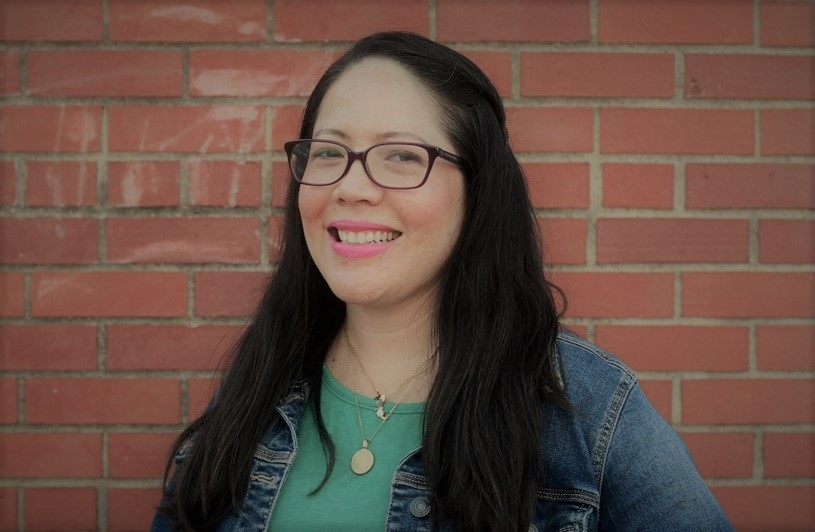My husband, who we’ll call A, had the tree-house-and-bicycle adventures with his friends. The kind of adventures that we Latin Americans who grew up in the eighties dreamed about while devouring E.T. and The Goonies and a heap of buttery popcorn. As if that were not enough, his childhood also included fantastic scenes of forests and mountains. Perfectly blue lakes and skies. Everything that was not a part of all the backdrops of my urban childhood.
It is precisely in this idyllic corner where A was born, a little town nestled in the southern Appalachians, where I will be welcoming the new year. It will arrive in complete stillness, without fireworks or the burning of los años viejos, without the usual roar of the porteña Guayaquil and the crowds on the beaches of Salinas.
How I miss the fire and the explosions at the end of each year I spend away from Ecuador. That chaos that the students in my Spanish class, somewhere between joking and eloquence, tell me “only happens here when there’s a riot, profesora.”
I can’t argue with that.
From the projector screen, giant flares threaten to escape. The burst of firecrackers, overwhelming. As if that same night, on the shores of a warm corner of the Pacific, the world was about to end.
I wonder if that same thought brushed past A’s mind on the last night of 2015, while we waited for the start of the new year from a seventh floor facing the sea. Quietly on his little piece of balcony, barely daring to breathe, he watched the pyrotechnic dance splashing into the black sky. Thousands of sparks drawing petals and incandescent waterfalls. All that noise a contrast to the stillness of the water.
Close to midnight, when they began to drag the papier-mâché effigies, those wonderful años viejos, to the gigantic pile burning by the sea, A whispered in my ear “Do they have to burn them all?”. I rubbed his back remembering that when I was little, I didn’t like when they burned the viejos either.
And there, in his grief for the años viejos—there, on his little piece of balcony—A remained, while all around him, bottles fired champagne and dozens of juicy grapes listened patiently to long lists of wishes. Regrets disguised as intentions.
This December, A will be the one comforting me for the lack of commotion during New Year’s Eve. With a little luck, the echo of the Appalachian Mountains will bring me back something from the coastal Nochevieja. The boom of a firecracker, the ¡Feliz Año! of family and friends. Or maybe—just maybe—the nostalgic song of un año viejo. One that awaits calmly for the flames to embrace him so that his fleeting destiny can be fulfilled, giving us the opportunity for a new beginning. Reminding us of what could be.
Un año viejo in exchange for twelve months to reinvent ourselves.

This story is taken from Querencia: Crónicas de una latinoamericana en USA (Katakana, 2020).
Melanie Márquez Adams is an Ecuadorian American writer, author the short story collection Mariposas Negras and Querencia: Crónicas de una latinoamericana en USA. She holds an MFA in Spanish Creative Writing from the University of Iowa where she was an Iowa Arts Fellow.
 More recently, her work has appeared in Puerta del Sol (forthcoming), Laurel Review, Launch Ticket, Huella Magazine, and Escritorxs Salvajes: 37 Hispanic Writers in the United States. An International Latino Book Award winner, Melanie translated Layla F. Saad’s Me and White Supremacy for Penguin Random House Español. Follow her: @melmarquezadams, melmarquezadams.
More recently, her work has appeared in Puerta del Sol (forthcoming), Laurel Review, Launch Ticket, Huella Magazine, and Escritorxs Salvajes: 37 Hispanic Writers in the United States. An International Latino Book Award winner, Melanie translated Layla F. Saad’s Me and White Supremacy for Penguin Random House Español. Follow her: @melmarquezadams, melmarquezadams.
 Mallory Truckenmiller Saylor is an MFA Iowa Arts Fellow in literary translation at the University of Iowa and received a BA in English from Saint Vincent College. Specializing in Gender, Women, and Sexuality Studies, Mallory primarily translates Latin American and Iberian women writers with a focus on the role of gender in literature and translation. She has worked with Asymptote Book Club, Eulalia Books, and Exchanges. Follow her: @malloreo.
Mallory Truckenmiller Saylor is an MFA Iowa Arts Fellow in literary translation at the University of Iowa and received a BA in English from Saint Vincent College. Specializing in Gender, Women, and Sexuality Studies, Mallory primarily translates Latin American and Iberian women writers with a focus on the role of gender in literature and translation. She has worked with Asymptote Book Club, Eulalia Books, and Exchanges. Follow her: @malloreo.






